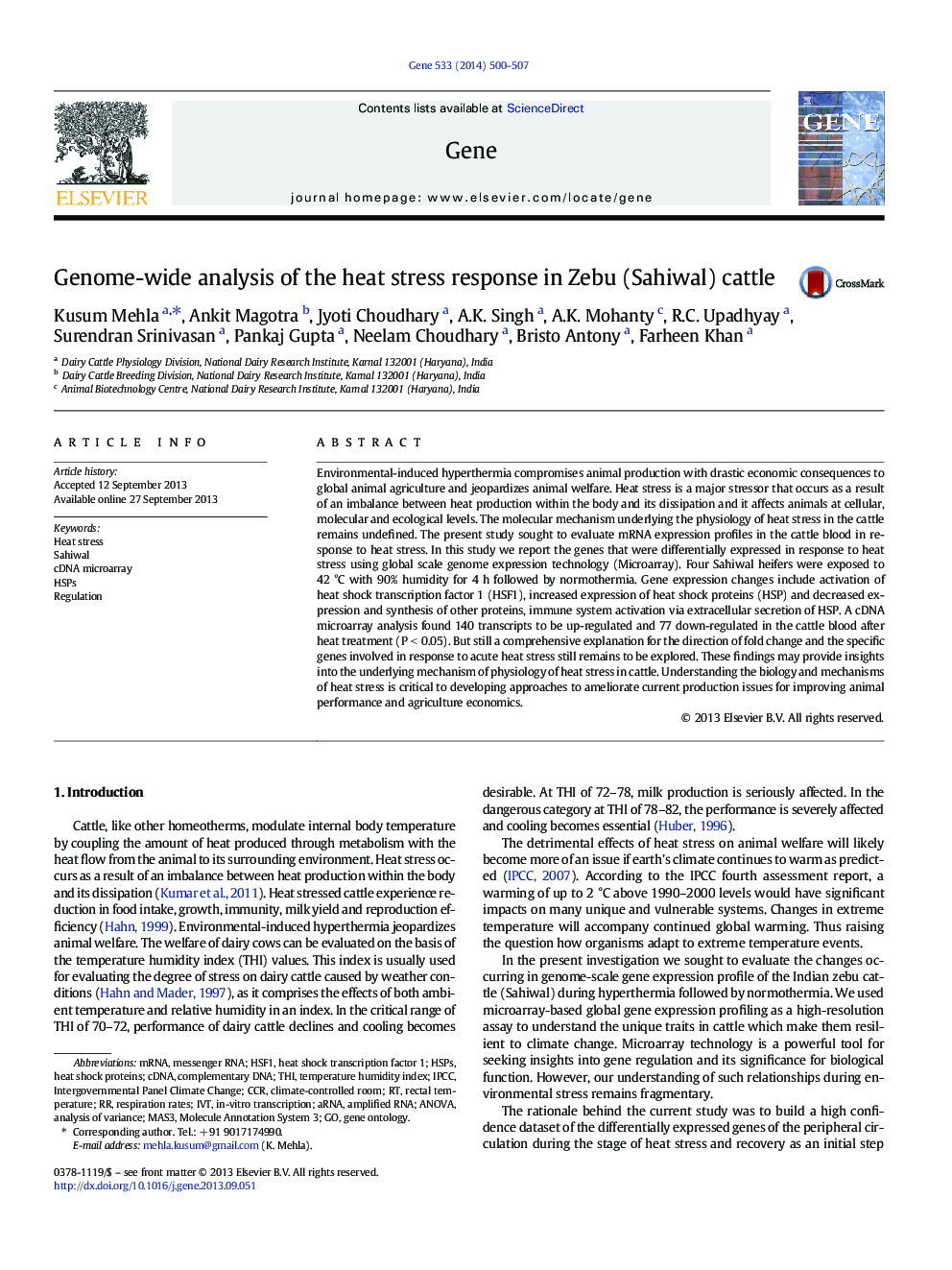| Article ID | Journal | Published Year | Pages | File Type |
|---|---|---|---|---|
| 2816820 | Gene | 2014 | 8 Pages |
•Study advancing knowledge of effect of climate change on tropical cattle physiology•140 transcripts up-regulated and 77 down-regulated due to heat stress in zebu cattle•Transcriptome, biological functions significantly altered in response to heat stress•Genes related to protein turnover, immunity and metabolism were majorly affected.•Metabolic processes and immunity compromised due to heat stress
Environmental-induced hyperthermia compromises animal production with drastic economic consequences to global animal agriculture and jeopardizes animal welfare. Heat stress is a major stressor that occurs as a result of an imbalance between heat production within the body and its dissipation and it affects animals at cellular, molecular and ecological levels. The molecular mechanism underlying the physiology of heat stress in the cattle remains undefined. The present study sought to evaluate mRNA expression profiles in the cattle blood in response to heat stress. In this study we report the genes that were differentially expressed in response to heat stress using global scale genome expression technology (Microarray). Four Sahiwal heifers were exposed to 42 °C with 90% humidity for 4 h followed by normothermia. Gene expression changes include activation of heat shock transcription factor 1 (HSF1), increased expression of heat shock proteins (HSP) and decreased expression and synthesis of other proteins, immune system activation via extracellular secretion of HSP. A cDNA microarray analysis found 140 transcripts to be up-regulated and 77 down-regulated in the cattle blood after heat treatment (P < 0.05). But still a comprehensive explanation for the direction of fold change and the specific genes involved in response to acute heat stress still remains to be explored. These findings may provide insights into the underlying mechanism of physiology of heat stress in cattle. Understanding the biology and mechanisms of heat stress is critical to developing approaches to ameliorate current production issues for improving animal performance and agriculture economics.
